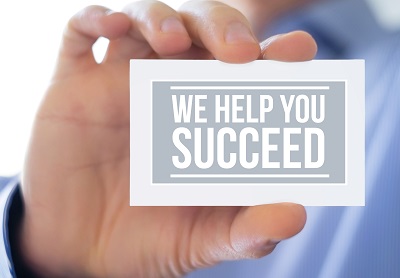The Career Library is for new and existing consumers of the Consumer VR program who would like to start exploring their career field. These links will assist you while you are working with a Consumer VR program counselor. Remember, YOU are your own BEST ADVOCATE!
Here you will find a listing of helpful Internet resources to assist you in your job search. These resources can help you find work as well as other information that you may need to go to work. Make a list of what you find and show it to your Vocational Rehabilitation Counselor.
The career exploration area is where you can explore what skills, talents and interests you have. It has some good tools to help you find the type of job that will make you happy. Making a list of your skills and experiences will also help you and your VR counselor get you the best job possible. Things you have done in the past are called experience.
Holland Code Quiz
Each question is an opportunity for you to describe the kinds of things you as a person can do, might like to do or the action that most fits you. When you have selected all of the choices that describe you, click "submit" to determine what career path(s) work best for you.
What Do You Like?
Exploring Career Information from the Bureau of Labor Statistics
Who Are You?
Find out what careers best match your interests
Interest Assessment
Knowing your work interests can help you decide what kinds of careers you want to explore. This Assessment survey will help identify your strongest work-related interests.
The "Applying for the Job" area is where you will learn about three important items you will need when you are ready to apply for your job. They are your cover letter, your resume and your references.
open all close allA cover letter is your introduction letter when you apply for a job. Here are some important points to remember when creating your cover letter.
What makes a Good Resume?
A resume is an honest, easy to read, impressive summary of your accomplishments, education, training and work history. Your resume is a tool with one specific purpose: to win you an interview. It should tell the prospective employer why they should call you in for an interview. It needs to include:
Make a list before you start.
Your VR counselor can be a big help in working with you to create your resume.
What are references?
References are very important when you are looking for a job. A reference is someone who knows who you are, and also knows something about the work you have done and the skills that you have.
Some examples of people who make good references are:
A few other reference reminders:
A job interview a meeting with someone at the company you want to work for. It is when you will tell them about YOU and how good a worker you will be. The "Interviewing" area is where you will learn how to get ready for your job interview. These are things you should know BEFORE you go on your interview.
You are all set to go for your job interview. Before you go, you will need to do some homework. Being prepared for your interview is the most important thing you can do to get the job. Here are some tips that will help you get ready:
Have you ever heard the term "Dress For Success?" Dressing correctly is very important when you go on your interview. Remember, the first impression you make on the employer is the most important one. You need to be neat and clean. Here are some "Do's and Don'ts" to help you look your best during your interview.
For a man:
For a woman:
Just a few more things to remember:
Your "Attitude" is the way you think, act and feel.
A "First Impression" only happens once. When you go for your interview you want the employer to want to hire you. Having a good attitude and good manners are important both at an interview and on the job.
Having a good attitude can make a big difference in how the employer feels about you.
Here are a few tips to help have a good attitude and good manners:

Now that you have had an interview with an employer, you have one more thing to do that is very important. You need to send a follow-up letter to the person with whom you had the interview.
Here are a few things to include in your "thank you" letter: